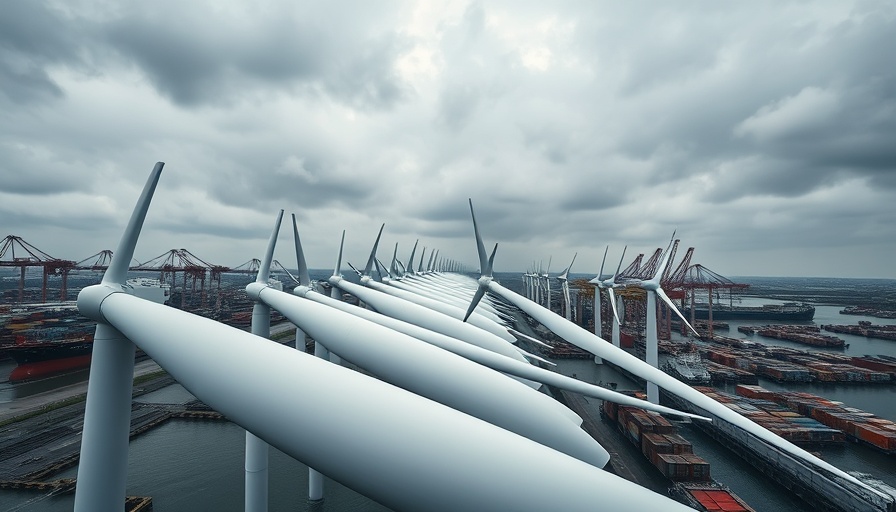
How Trump's Presidency Changed Our Views on Supply Chains
In the chaotic political landscape that unfolded during Donald Trump’s presidency, one unexpected area caught the public's eye: supply chains. As many professionals in logistics and trade were well aware, the intricacies of global supply systems have always been critical to our economy. However, the Trump administration's confrontational stance on international trade, characterized by tariffs and renegotiations of long-standing agreements, thrust supply chains into the spotlight. This dramatic shift not only impacted businesses directly involved in the supply chain but also prompted a national conversation about the repercussions of supply disruption.
Understanding Supply Chain Vulnerabilities
Before the pandemic, supply chains functioned largely behind the scenes, appreciated only by industry insiders. The pandemic acted as a cruel magnifying glass that laid bare the vulnerabilities within these networks. As consumers faced empty shelves and delayed deliveries, it became clear that supply chains are not just logistical mechanisms; they are lifelines that connect manufacturers, suppliers, and consumers.
The stark realization that a factory shutdown in one part of the world could ripple through global economies forced professionals and laypeople alike to confront the fragility of interconnectedness. News stories proliferated about empty ports and shipping delays, making headlines worldwide. Suddenly, it was not just about economic concerns but about food supplies, sanitary products, and healthcare items critical for survival.
Bipartisan Insights on Trade Policy
The complexities of trade policy have always been a point of contention within Congress, often dissolving into partisan disputes. Trump's 'America First' approach sometimes drew bipartisan agreement regarding the need for a re-evaluation of previous trade agreements, like NAFTA. As President Biden took office, the urgency of addressing supply chain issues lingered, setting the stage for possible bipartisan negotiations over trade policies and tariffs. Collaboration in this area could not only stabilize markets but also foster stronger economic resilience against future disruptions.
Lessons Learned for Future Resilience
One of the primary takeaways from recent experiences is the significance of localizing supply chains. Businesses are increasingly examining their dependencies on foreign manufacturers. Amid rising tension with countries like China and fluctuating trade agreements, a shift toward local sourcing can not only mitigate risk but also bolster domestic employment and innovation in manufacturing.
Moreover, it has encouraged discussions about innovation in logistics and supply chain technology, including automation and AI. These advancements promise to streamline operations, improve efficiency, and increase transparency across supply networks.
Future Trends in Supply Chain Management
As we move forward, the conversation surrounding supply chains will undoubtedly encompass broader topics such as climate change and sustainability. Environmental concerns are leading companies to understand that their supply chains can significantly impact carbon footprints. By incorporating sustainable practices, businesses could minimize their ecological impact and appeal to more conscious consumers.
Another important trend is the digital transformation of supply chains. Embracing new technologies such as blockchain could ensure better traceability, efficiency, and accountability in the procurement process. Overall, the future of supply chains seems aimed at greater adaptability and resilience in the face of market fluctuations, consumer needs, and global events.
The Call to Action: The Importance of Staying Informed
As we continue to navigate the shifts in our economy and the significance of supply chains, the onus is on each professional to remain informed. Engaging with trade policies, investing in local sourcing, and adapting to changes in technology are essential steps that can be taken. By understanding the complexities and the adjustments needed in supply chain operations, professionals can play a crucial role in shaping a more resilient future.
Securing effective supply chain strategies is not just an operational necessity; it’s an opportunity for innovation, economic revival, and sustainable growth. Stay informed, be adaptive, and take proactive steps towards participatory resilience in supply chain management.
 Add Row
Add Row  Add
Add 




Write A Comment